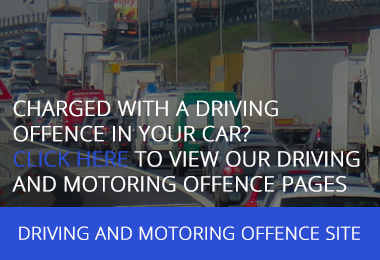What Does Offence Code SP30 Mean?

You receive a Single Justice Procedure Notice (SJPN) or Notice of Intended Prosecution (NIP) and see code SP30. What does this mean? Is it for exceeding a statutory speed limit on a public road or for exceeding a 30 mph limit in particular?
It is a common misconception that SP30 relates to an offence of exceeding a 30 mph speed limit. In fact, SP30 just happens to be the offence code – it can be any statutory speed limit on a public road.
There are a number of different codes relating to speeding offences:
SP10 Exceeding goods vehicle speed limit
SP20 Exceeding speed limit for type of vehicle (excluding goods or passenger vehicles)
SP30 Exceeding statutory speed limit on a public road
SP40 Exceeding passenger vehicle speed limit
SP50 Exceeding speed limit on a motorway
A list of other more common offence codes can be found here.
AC10 Failing to stop after an accident
CD10 Driving without due care and attention
CD20 Driving without reasonable consideration for other road users
CU10 Using a vehicle with defective brakes
CU30 Using a vehicle with defective tyres
CU80 Breach of requirements as to control of the vehicle, such as using a mobile phone
IN10 Using a vehicle uninsured against third party risks
LC20 Driving otherwise than in accordance with a licence
TS10 Failing to comply with traffic light signals
TS20 Failing to comply with double white lines
TS30 Failing to comply with ‘stop’ sign
At Smith Bowyer Clarke our barristers and solicitors are specialists in Road Transport and Motoring Law (Have a look at our motoring pages https://www.sbcmotoringlaw.co.uk/ ) and we have extensive experience assisting operators and drivers. For a free no-obligation consultation call us now on 01332 987420.


